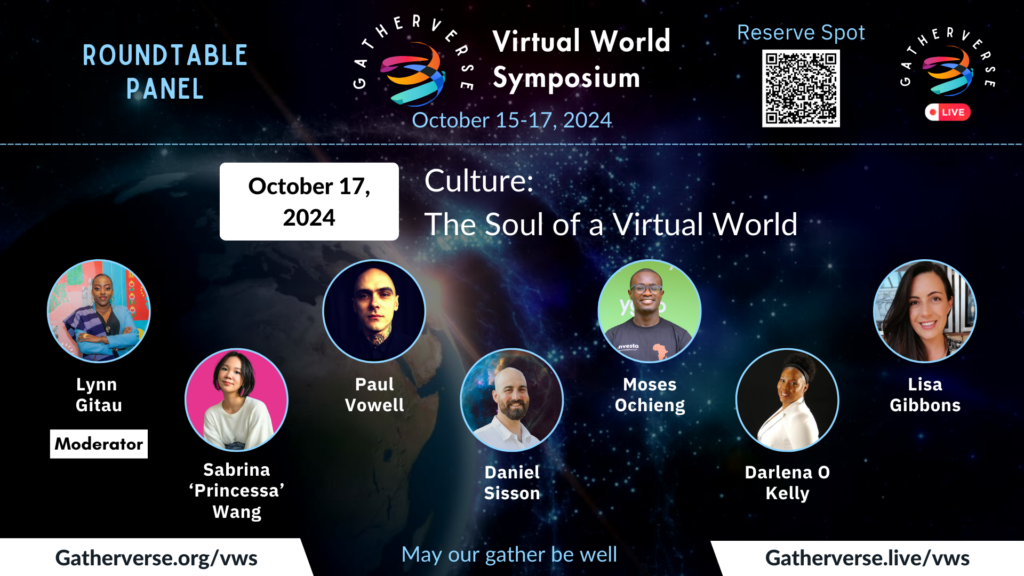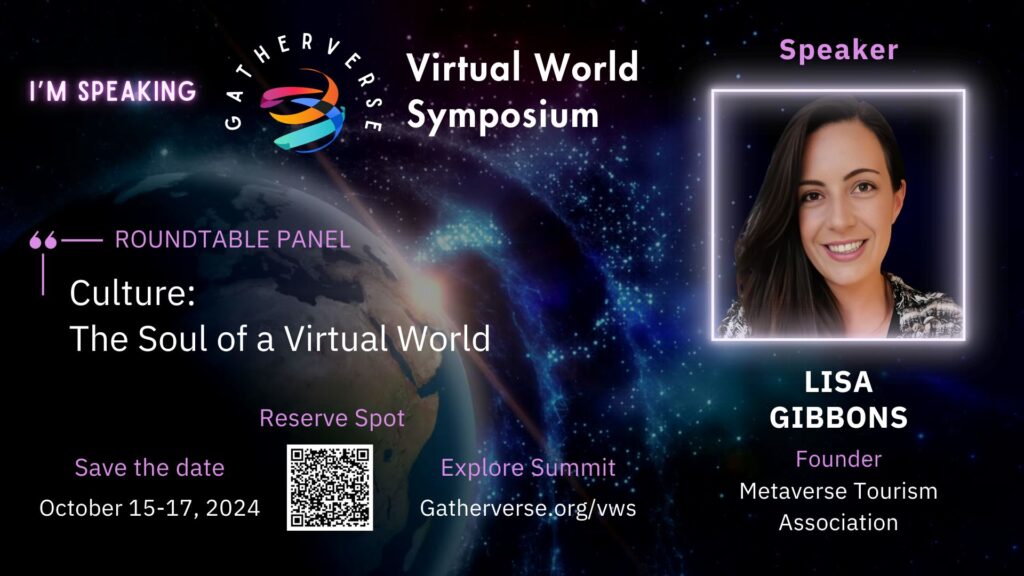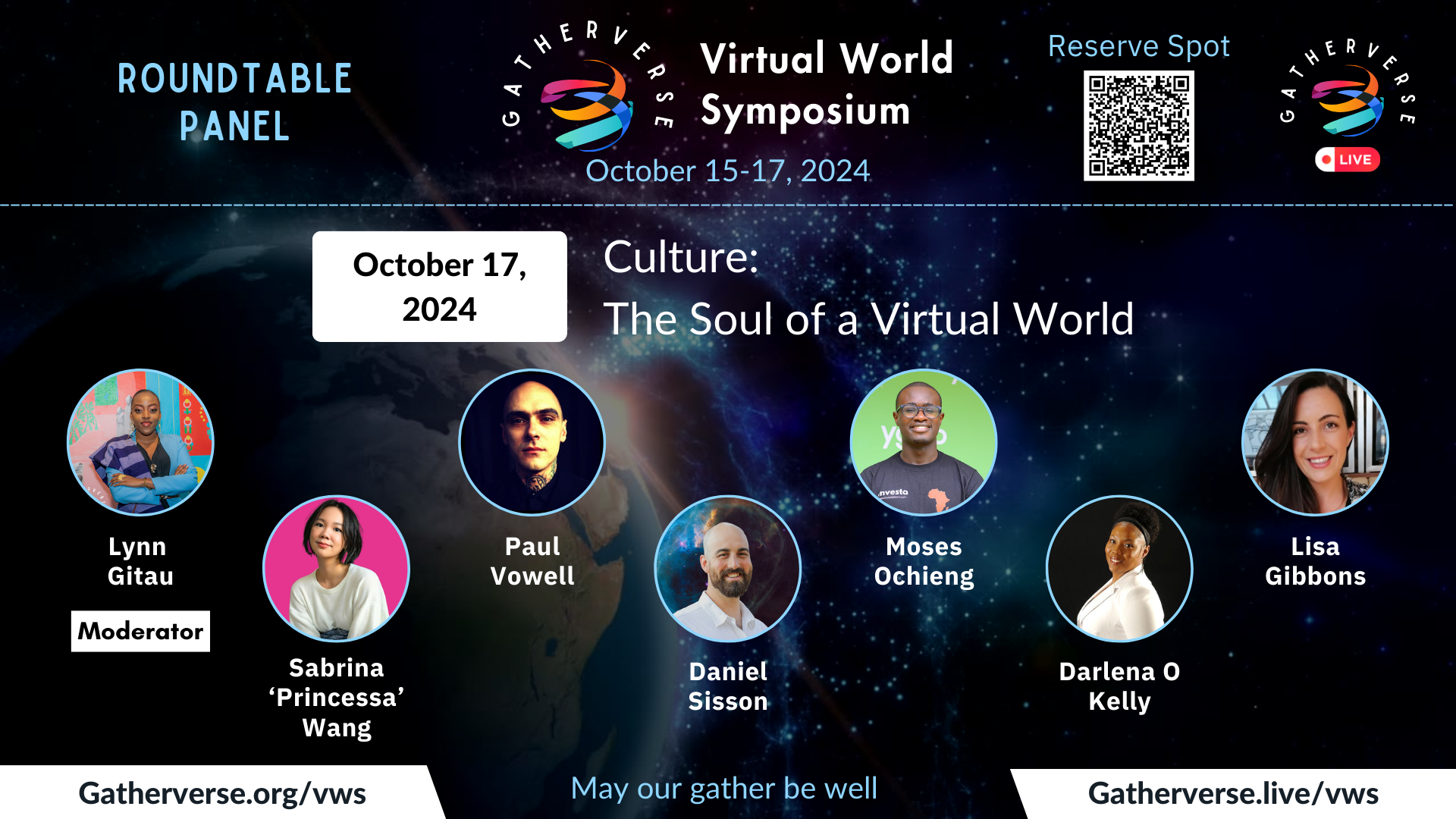Gatherverse 2024 takes place from October 15 – October 17, 2024.
The Gatherverse Virtual World Symposium brings this conversation to the forefront, diving deep into the rapidly evolving landscape of AI-powered virtual worlds, spatial intelligence, and what this all means for society. But why should we care, and why are these discussions so important right now?
Virtual worlds are no longer just a concept found in sci-fi or niche gaming communities. Today, they are interactive environments where individuals, businesses, educators, and industries can collaborate, learn, and socialize. As AI continues to power these immersive spaces, we find ourselves on the brink of experiencing virtual worlds that feel more lifelike and integrated into our everyday lives than ever before.

What are virtual worlds, exactly? At their core, they are digital environments where users can interact not just with each other, but with a space that reacts and adapts in real-time, often through avatars or personalized digital identities. Thanks to advancements in spatial intelligence—the ability for machines to understand and interpret space in ways that mimic human perception—these environments are becoming more seamless, offering richer experiences that blur the lines between the virtual and the physical.
Why the Conversation Is Critical Now
The Virtual World Symposium doesn’t just explore what virtual worlds are, but also their future trajectory. As virtual spaces rapidly expand, they hold enormous potential to redefine human interaction across multiple domains:
Education – Virtual worlds offer an unparalleled opportunity for experiential learning. Imagine attending a history class not through books or screens, but by walking through a meticulously recreated ancient city. In these spaces, learners can engage with their environment and even manipulate variables to understand cause and effect in real time.
Business – Global collaboration takes on a new meaning in immersive environments. Instead of video calls, professionals from around the world could walk through digital replicas of their projects, simulate complex tasks, and brainstorm in virtual rooms that allow for much more dynamic interaction.
Community Building – The future of social interaction may evolve in ways we’re only just beginning to understand. Virtual worlds can foster communities that go beyond geographic and socio-economic barriers, giving people a sense of belonging in spaces that reflect their interests, identities, or even their aspirations.
Industry – From advanced simulations in healthcare to virtual prototyping in manufacturing, industries can leverage virtual environments to innovate faster and more effectively. In many cases, this leads to more sustainable practices, reducing the need for physical resources during the development and testing stages.
While the possibilities are exciting, the symposium also highlights a crucial point: We must ask questions about the ethical, social, and psychological implications of these spaces.
The Importance of Open Dialogue
The immersive future we’re stepping into raises a number of questions that need collective input and thoughtful discussion. Who will control these virtual spaces? How do we ensure privacy and security when our digital selves interact in such an intricate and responsive environment? How do we maintain equity and accessibility in a world where immersive experiences might be unevenly distributed across different demographics and regions?
This is where the Gatherverse Symposium plays an essential role. It offers a platform for these questions to be addressed by experts, visionaries, and everyday users alike. The goal is not just to marvel at technological advancement but to consider its human impact—to think critically about how we shape these worlds to ensure they remain inclusive, ethical, and beneficial to all.
Shaping the Future of Virtual Worlds
The Gatherverse Virtual World Symposium isn’t just a glance into the future—it’s a call to actively shape it. As virtual worlds continue to grow in complexity and scope, it’s up to us to ensure they are built on principles that enhance human life rather than complicate it.
The dialogue needs to include everyone—technologists, educators, industry leaders, and everyday citizens—because virtual worlds will touch all aspects of society. By participating in discussions at events like Gatherverse, we can collectively navigate the potential risks and rewards, ensuring that our immersive future is one where creativity, accessibility, and innovation thrive.
In short, virtual worlds aren’t just a passing trend—they are becoming the next frontier of human interaction. The question isn’t whether we will embrace them, but how we will guide their evolution to ensure they enhance our lives in meaningful ways.
Founder of the MTA, Lisa Gibbons will join a panel of experts to discuss the importance of culture in virtual worlds on October 17th. Find more information here.


